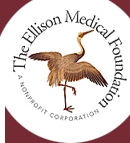| |
About The Global Infectious Disease Program
Reaching outward beyond the privileged societies, there are many diseases that present a major global health challenge and, in fact, account for much of the world's mortality and morbidity. The World Health Organization estimates that 13 million people die annually of infectious diseases. Most of these are children and young adults living in developing countries. The Ellison Medical Foundation Global Infectious Disease Program supports biomedical research on molecular and cellular mechanisms of disease, informed by the vision of how this can ameliorate some of humankind's most pressing problems.
Within the broad scope of infectious disease research, the Global Infectious Disease Program aims to focus its support by placing emphasis on:
- Those intractable or emerging parasitic and infectious diseases, caused by viral, bacterial, fungal, protozoal, or helminthic pathogens of major global public health concern, that are relatively neglected in federally funded research within the U.S.
- Innovative research that might not be funded by traditional sources, including projects involving the application of new concepts or new technologies whose feasibility is not yet proven, projects seeking commonalities among pathogens that might yield new insights into mechanisms of infection, invasion and pathogenesis, or projects seeking to bring together diverse scientific disciplines in the study of infectious diseases
- Aspects of fundamental research that may significantly impact the understanding and control of infectious diseases, but have not found a home within traditional funding agencies, such as:
- Our microbiome – natural microflora and pathogen ecology and evolution
- Therapeutic role of probiotics
- New concepts for antivirals and antiparasitics
- Diet, nutrition and immunity
- Implications of disease eradication
- Zoonoses – wildlife and human disease
- Comparative immunology
- Threats from newly explored habitats
- Host factors, human genomics and disease susceptibility
- Signaling and gene flow between parasites and hosts
- Parasite molecular mimicry
- Fever and other symptomatology
- Plasmid and phage determinants of virulence
- Phylogeny and ultimate origins of viruses
- Nosocomial infection and sanitary precaution
- Vector control and pesticide development
- Dyshygenic abuse of antibiotics and microbicides
The Global Infectious Disease Program encourages formation of research consortia between U.S. institutions and those in other disease endemic countries.
For further information, contact:
Richard L. Sprott, Ph.D.
Executive Director
The Ellison Medical Foundation
4710 Bethesda Avenue
Suite 204
Bethesda, MD 20814-5226
(301) 657-1830 (Phone)
(301) 657-1828 (Fax)
Contact Dr. Sprott |
 |






